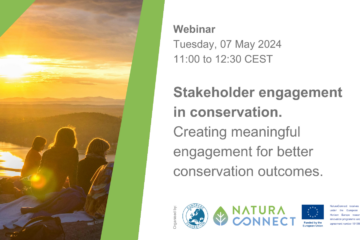Conference on Waters 2040: Climate Change and Resilient Water Management in the Danube Catchment
3RD NATIONAL PARTICIPATION DAY – AUSTRIA
9 April 2024, 9:00 – 18:00 | Vienna, Austria
Increasing climate variability leads to significant changes in the water cycles in Europe. Many interests and pressures are affecting the Danube River network leading to risks for human uses and a decline in aquatic biodiversity.
The Danube catchment is the second largest river basin in Europe. The Danube drains large parts of central and southeastern Europe, and crosses ten countries – more than any other river on earth. Consequently, the Danube River basin is one of the most important and oldest cultural and economic areas in Europe.
As hydrological processes change, water will not always be available to all users in the same quantity at the same time as it used to be. Societies will inevitably need to adapt to changes in the ecological conditions of aquatic systems and the availability and utilization of water.
Furthermore, in times of war and conflict, the impacts of climate change are exacerbated. For example, the Russian war on Ukraine brought severe damage, pollution, and negative impact on the water systems in Ukraine, among others at the Danube delta region at an unprecedented scale. This issue also needs to be addressed to manage water in the Danube river basin.
The conference Waters 2040: Climate Change and Resilient Water Management in the Danube Catchment will focus on the expected future challenges in the realm of water management.
Contacts:
Helmut Habersack, helmut.habersack@boku.ac.at;
Stefan Lütgenau, luetgenau@foster-europe.org
Registration:
Laura Szitár, office@foster-europe.org
The conference will analyse the expected challenges in selected areas. It will address possible areas of conflict of interest among users and stakeholders. The conference will give voice to the younger generation of researchers by including the HR21 doctoral school. Furthermore, it will actively involve the Civil Society and reach out to all participants by asking for input for cocreation and co-design of strategies and action to adapt to the expected challenges.
The conference will present recent research from doctoral researchers and establish experts. In the deliberations they will debate what the EUSDR can contribute to mitigate the negative impacts from the expected changes in hydrology and how the EUSDR shall adapt and react to provide the bests services for European citizens. The conference strives to provide a set of clear and practical recommendations to the strategy to better react to present and future challenges. As the driving factors in nature as well as in the European political landscape are changing, the organisers strive to provide information on the climate change impacts to the water cycles and aquatic systems and the suggested actions in a bi-annual forum.
This conference may serve as another step for a deepened exchange of academia, experts, international bodies, civil society and interested public (including media) on improved water management and a new perspective for water utilisation in the Danube catchment.


